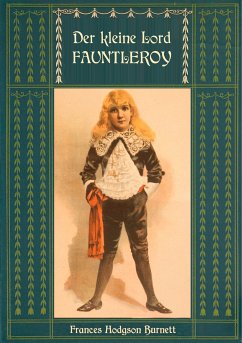
Ainsi parlait Zarathoustra (eBook, ePUB)
Friedrich Nietzsche

PAYBACK Punkte
0 °P sammeln!
Ainsi parlait Zarathoustra : un livre pour tous et pour personne ( allemand : Also sprach Zarathustra : Ein Buch für Alle und Keinen ), également traduit par Ainsi parla Zarathoustra , est une uvre de fiction philosophique écrite par le philosophe allemand Friedrich Nietzsche ; il a été publié en quatre volumes entre 1883 et 1885. Le protagoniste est nominalement le Zoroastre historique .Une grande partie du livre se compose de discours de Zarathoustra sur une grande variété de sujets, dont la plupart se terminent par le refrain « Ainsi parlait Zarathoustra ». Le personnage de Zarath...
Ainsi parlait Zarathoustra : un livre pour tous et pour personne ( allemand : Also sprach Zarathustra : Ein Buch für Alle und Keinen ), également traduit par Ainsi parla Zarathoustra , est une uvre de fiction philosophique écrite par le philosophe allemand Friedrich Nietzsche ; il a été publié en quatre volumes entre 1883 et 1885. Le protagoniste est nominalement le Zoroastre historique .Une grande partie du livre se compose de discours de Zarathoustra sur une grande variété de sujets, dont la plupart se terminent par le refrain « Ainsi parlait Zarathoustra ». Le personnage de Zarathoustra est apparu pour la première fois dans le livre précédent de Nietzsche, La Science gaie (au §342, qui ressemble beaucoup au §1 du « Prologue de Zarathoustra » dans Ainsi parlait Zarathoustra ).Le style du Zarathoustra de Nietzsche a facilité des idées variées et souvent incompatibles sur ce que dit le Zarathoustra de Nietzsche. Les «[e]xplications et affirmations» données par le personnage de Zarathoustra dans cette uvre «sont presque toujours analogiques et figuratives». [1] Bien qu'il n'y ait pas de consensus sur ce que Zarathoustra veut dire lorsqu'il parle, il existe un certain consensus sur ce qu'il dit. Ainsi Spoke Zarathoustra traite des idées sur l' Übermensch , la mort de Dieu , la volonté de puissance et la récurrence éternelle .
Dieser Download kann aus rechtlichen Gründen nur mit Rechnungsadresse in A, B, BG, CY, CZ, D, DK, EW, E, FIN, F, GR, H, IRL, I, LT, L, LR, M, NL, PL, P, R, S, SLO, SK ausgeliefert werden.













